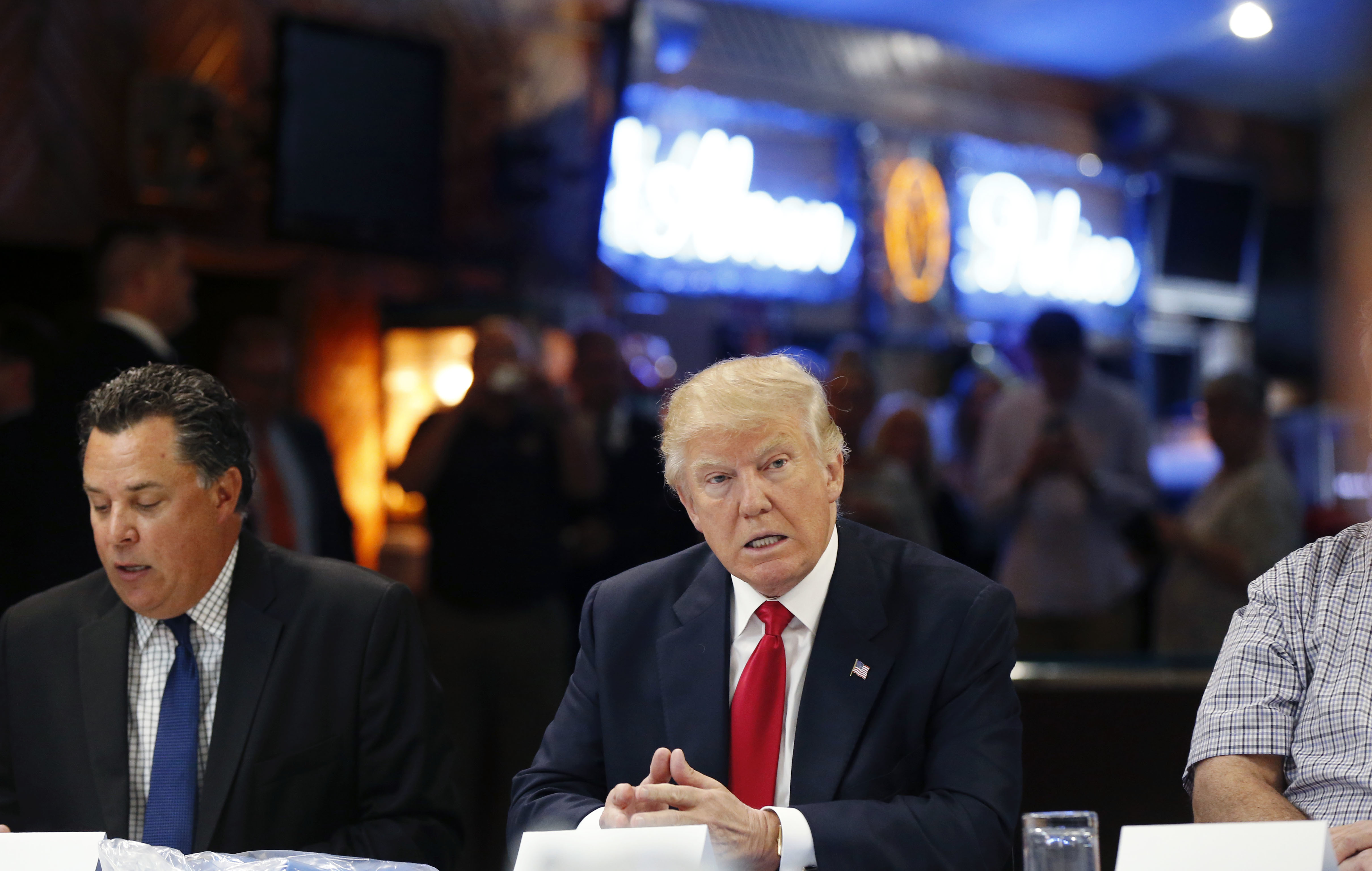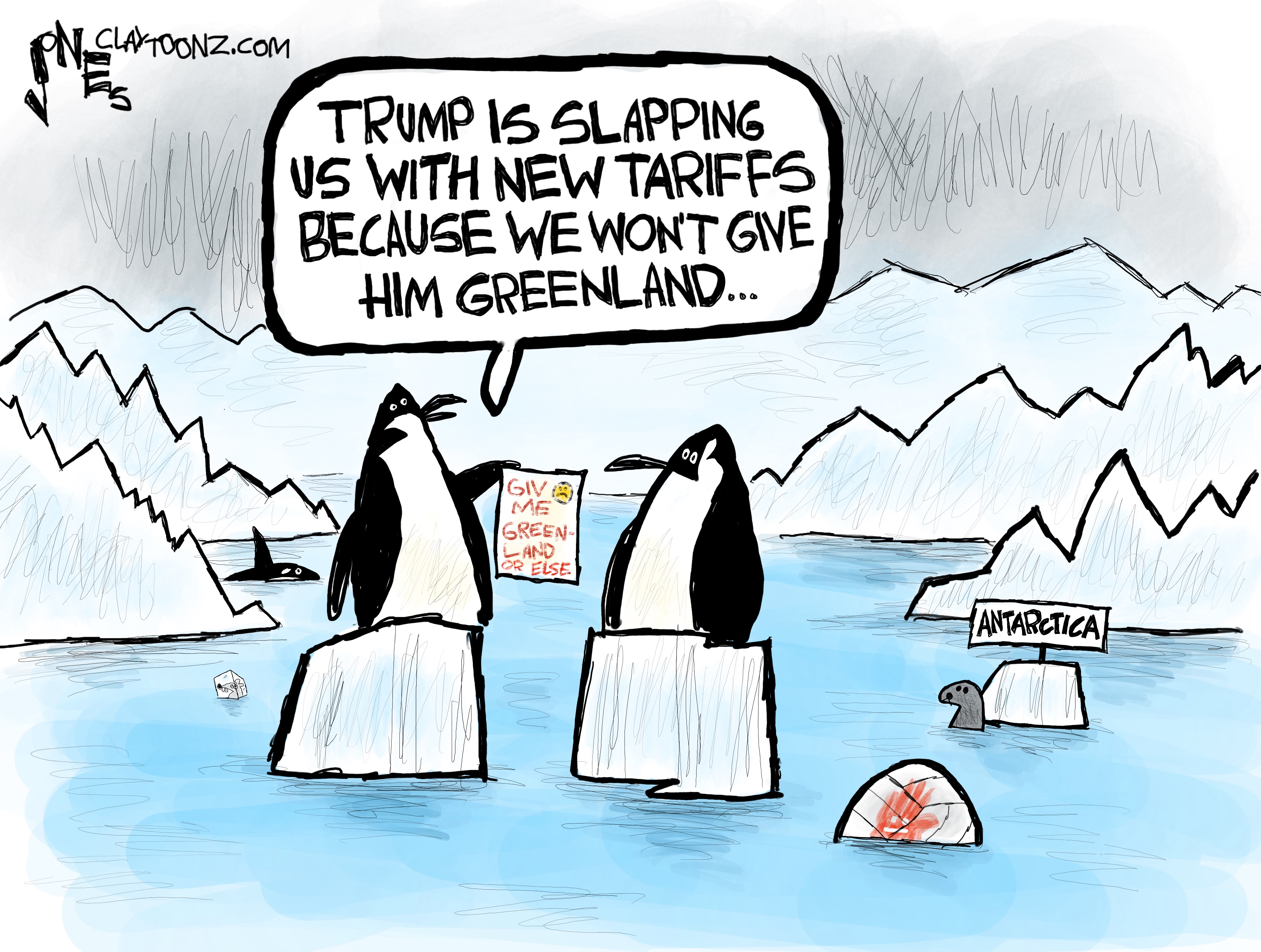How Donald Trump shattered his own movement
Trumpism will end with Trump


There's a suspicion that Donald Trump's candidacy will have an epochal effect on the Republican Party. Somehow, even if he can't write his unique brand of nationalism into the party creeds, some other opportunist with greater political skills and more self-discipline will be able to. I highly doubt it. Trump is setting his own movement up for rejection.
The case that Trumpism will continue to have potency, or even get stronger after Trump, goes something like this: Trump's rise is the delayed onset in America of a global phenomenon of resistance to globalization. The middle class is being hollowed out everywhere, and nothing Hillary Clinton can do will reverse this process. The financial, social, and psychic costs of emigration from the Third World to the First World will continue to fall and continue to put cultural and economic pressure on the West's native residents, themselves aging into a demographic winter.
But there are obvious problems with this theory. For one, Europe's right-wing nationalist parties exist because Europe's Islamic immigrant communities are far less assimilated than America's. These communities are seen by some Europeans as a threat to the liberal order and a source of terrorism. By contrast, the great post-1965 wave of immigration to the United States threatens to make America bilingual, and a little more integrated into Latin and South America. Many American oppose this, but it doesn't inspire existential dread.
The Week
Escape your echo chamber. Get the facts behind the news, plus analysis from multiple perspectives.

Sign up for The Week's Free Newsletters
From our morning news briefing to a weekly Good News Newsletter, get the best of The Week delivered directly to your inbox.
From our morning news briefing to a weekly Good News Newsletter, get the best of The Week delivered directly to your inbox.
Stateside, Trumpist congressional challengers are not faring nearly as well against their globalist conservative enemies as Trump is. Paul Nehlen got creamed in his longshot bid to unseat Paul Ryan. Previous champions of amnesty like John McCain and Marco Rubio coasted relatively unscathed in their primaries.
If Trumpism wants to survive, it has to mutate. There are two directions it can go in.
If Trumpism as a political movement wants to retain its economic nationalism, it has to pitch itself to an audience larger than the white working class, perhaps something like what political writer Will Rahn called, "rainbow nationalism." That means putting the emphasis on attacking economic elites and corruption in government, while championing the economic interests of working Americans who want to see their Medicare and Social Security benefits saved, not slashed.
The other way Trumpism could mutate is to do a better job assimilating all the parts of the Republican Party that feel uncomfortable with the conservative movement. Although its chief expositors live in the Beltway, in the rest of the country, the conservative movement is a creature of the exurbs, doing occasional sorties into other parts of America via SUV. Trump has found his strongest support elsewhere: in the nationalist right of the South, in the working class of coal country, and among the kind of Northeast Republicans who find the evangelical personality within conservatism slightly off-putting. Political ideas are pliable enough to create some kind of ideology that connects these voters to each other. But what would it be?
A free daily email with the biggest news stories of the day – and the best features from TheWeek.com
These possible mutations have something in common: They are both rather far-fetched. While global trends may eventually push the Republican Party away from the business class and towards nationalists on immigration restriction, the rest of Trumpism seems bound to go into abeyance.
Trump brags about bringing millions of new voters into the party. And surely, he's inspired some new voters. But the more salient fact of the Trump campaign to Republican officeholders and apparatchiks is the poverty it is bringing the party. Trump doesn't seem like an improvement to them at all. He isn't making the party more popular; he's running well behind Mitt Romney. And this is true despite the fact that Hillary Clinton is a much weaker and less popular opponent than an incumbent Barack Obama.
Further, the party's fundraising base is appalled. The wallets are closed. The party's expert class is demoralized; Trump can't even field a normal slate of advisers.
The political class of the party isn't rallying to him. When he goes far off script, the senators and House members of his party criticize him. Republican officeholders are keeping a slight and pained distance from Trump, the way family members do when a mean uncle is dying and there's no inheritance to be collected at the end.
2016 will make Trumpism look like a dead end in America. For better and worse, the party will belong to Paul Ryan again in a few months.
Michael Brendan Dougherty is senior correspondent at TheWeek.com. He is the founder and editor of The Slurve, a newsletter about baseball. His work has appeared in The New York Times Magazine, ESPN Magazine, Slate and The American Conservative.
-
 Political cartoons for January 19
Political cartoons for January 19Cartoons Monday's political cartoons include Greenland tariffs, fighting the Fed, and more
-
 Spain’s deadly high-speed train crash
Spain’s deadly high-speed train crashThe Explainer The country experienced its worst rail accident since 2013, with the death toll of 39 ‘not yet final’
-
 Can Starmer continue to walk the Trump tightrope?
Can Starmer continue to walk the Trump tightrope?Today's Big Question PM condemns US tariff threat but is less confrontational than some European allies
-
 The billionaires’ wealth tax: a catastrophe for California?
The billionaires’ wealth tax: a catastrophe for California?Talking Point Peter Thiel and Larry Page preparing to change state residency
-
 Bari Weiss’ ‘60 Minutes’ scandal is about more than one report
Bari Weiss’ ‘60 Minutes’ scandal is about more than one reportIN THE SPOTLIGHT By blocking an approved segment on a controversial prison holding US deportees in El Salvador, the editor-in-chief of CBS News has become the main story
-
 Has Zohran Mamdani shown the Democrats how to win again?
Has Zohran Mamdani shown the Democrats how to win again?Today’s Big Question New York City mayoral election touted as victory for left-wing populists but moderate centrist wins elsewhere present more complex path for Democratic Party
-
 Millions turn out for anti-Trump ‘No Kings’ rallies
Millions turn out for anti-Trump ‘No Kings’ ralliesSpeed Read An estimated 7 million people participated, 2 million more than at the first ‘No Kings’ protest in June
-
 Ghislaine Maxwell: angling for a Trump pardon
Ghislaine Maxwell: angling for a Trump pardonTalking Point Convicted sex trafficker's testimony could shed new light on president's links to Jeffrey Epstein
-
 The last words and final moments of 40 presidents
The last words and final moments of 40 presidentsThe Explainer Some are eloquent quotes worthy of the holders of the highest office in the nation, and others... aren't
-
 The JFK files: the truth at last?
The JFK files: the truth at last?In The Spotlight More than 64,000 previously classified documents relating the 1963 assassination of John F. Kennedy have been released by the Trump administration
-
 'Seriously, not literally': how should the world take Donald Trump?
'Seriously, not literally': how should the world take Donald Trump?Today's big question White House rhetoric and reality look likely to become increasingly blurred
